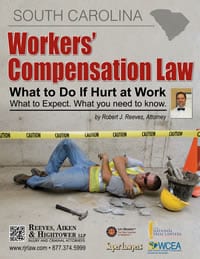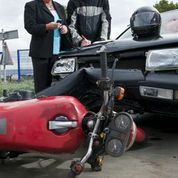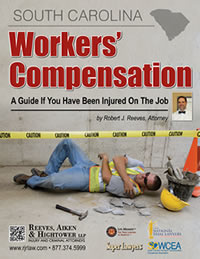Mar 26, 2014 | DUI & DWI, Uncategorized
DUI with Children in Vehicle 
A Rock Hill resident was arrested recently when she was driving drunk with her three minor children in the vehicle at the time. The Rock Hill Police Department reported that the incident occurred around 2:30 a.m. on Saturday morning when the Traffic Enforcement Unit was alerted to a swerving vehicle traveling down Cherry Road. A Rock Hill Police officer located and then followed the swerving vehicle for a short distance before initiating the stop, which ended at the intersection of Cherry Road and John Street, in downtown Rock Hill. The officer stated he smelled alcohol emanating from the vehicle. The 34-year-old mother had her three children in the vehicle at the time, ranging in ages from six to thirteen.
According to South Carolina law, the child endangerment definition and penalties provide that the state is permitted to take the child into protective custody if certain elements are met. S.C. SECTION 56-5-2947(2013) Specifically, if a person, who is over the age of eighteen (18), they will be found guilty of child endangerment in conjunction with being convicted when the person eighteen years of age or over is guilty and has one or more passengers under the age of sixteen (16) in their vehicle when the violation occurs. Id. In the case at hand, the violation rises to the level of child endangerment when the defendant drove while intoxicated with her three minor children in the vehicle, all under the age of sixteen (16).
A DUI charge is serious enough. But when you add child endangerment, the penalties are significantly enhanced, and you may face having your children taken from you and placed into protective custody. The obvious concern is for their safety in addition to the safety of other drivers on the road. However, it is surprisingly easy to find yourself in the position. We have had clients in the past who simply went out to get more beer from the store. They had consumed seemingly little alcohol, and it was early in the evening. They thought they were fine to drive and would never have knowingly placed their children in harm’s way. Nevertheless, when stopped for suspicion of DUI, their children were taken into custody as well, a frightening experience to say the least.
If charged with child endangerment as part of a DUI arrest, you absolutely need to be experienced DUI representation. We are Rock Hill DUI lawyers and will aggressively defend your case. Call us now for answers and potential options.
Mar 19, 2014 | General, Uncategorized
The personal injury and criminal defense attorneys at Reeves Aiken Hightower & Burns LLP are pleased to announce the opening of their newest office in Rock Hill, South Carolina. This is our third office in York County, including our main office in Fort Mill and satellite office in Lake Wylie. Because so many of our clients live and work in Rock Hill, we wanted to have a location that was convenient for them. Our new office is located at 2424 India Hook Road, Suite 200, Rock Hill, South Carolina 29732 near the intersection of Celanese and India Hook Road. We hope that the new location will prove convenient to new and existing clients in the Rock Hill area.
(more…)
Jan 31, 2014 | Criminal Defense, Drug Crimes and Controlled Substances Defense, DUI & DWI, Uncategorized
The answer to this question is a resounding YES. In South Carolina, a person is guilty of DUI if he or she drives a motor vehicle within the State under the influence of “any drug, combination of drugs, or combination of drugs and alcohol to the extent that the person’s faculties to drive were ‘materially and appreciably’ impaired.” S.C. Code Ann. § 56-5-2930(A) (West 2009)
In South Carolina, the implied consent laws apply. Therefore, a person who drives a motor vehicle in the State is considered to have given consent to chemical tests of his breath, blood, or urine for the purpose of determining the presence of alcohol or drugs or the combination of alcohol and drugs if arrested for an offense arising out of acts alleged to have been committed while the person was driving the motor vehicle while under the influence of alcohol, drugs, or a combination of both. S.C. Code Ann. § 56-5-2950(A) (West 2009)
- Further, the DMV in South Carolina MUST suspend the driver’s license, permit, or nonresident operating privilege of or deny the issuance of a license or permit to a person who drives a motor vehicle and refuses to submit to a blood test. S.C. Code Ann. § 56-5-2951(A) (West 2009)
- The accused has the right to have a qualified person of his own choosing conduct additional independent tests at his expense. The failure or inability of the person tested to obtain additional tests does not preclude the admission of evidence relating to the tests or samples obtained at the direction of the law enforcement officer. Id. §§ 56-5-2950(B)(3),(D).
Penalties
- First offense – fine of $400 or imprisonment for a period of not less than 48 hours, nor more than 30 days; Or minimum of 48 hours of public service; offender required to complete an Alcohol and Drug Safety Action Program. § 56-5-2930(A)(1).
- Second offense – fine of not less than $2,100, but not more than $5,100 and imprisonment for a period of not less than 5 days, but not more than 1 year; offender required to complete an Alcohol and Drug Safety Action Program. § 56-5-2930(A)(2).
- Third offense fine of not less than $3,800, nor more than $6,300, imprisonment for a period not less than 60 days nor more than 3 years; offender required to complete an Alcohol and Drug Safety Action Program. § 56-5-2930(A)(3).
- Fourth and subsequent offense – imprisonment for not less than 1 year nor more than 5 years; offender required to complete an Alcohol and Drug Safety Action Program. § 56-5-2930(A)(4).
So, if you or a loved one has been arrested, and your arrest falls under the purview of any of these laws and penalties, contact the law offices of Reeves, Aiken & Hightower, LLP toll-free at 877-374-5999 for a confidential consultation.
Jan 31, 2014 | Uncategorized, Workers' Compensation
SC Workers Compensation Law 
In most personal injury cases, “pain and suffering” is the most valuable part of any recovery second only to medical treatment. Workers compensation cases, while personal injury, are different. The laws were set up to make certain injured workers are compensated, but fairly harsh restrictions are placed on what benefits are available? So how were workers compensation laws created?
Before workers compensation, employees hurt at work were left with the traditional personal injury negligence theories of liability. They had to prove that their employer was negligent and that they were injured as a result. In many cases, the employer did nothing wrong, and the accident and resulting injury was actually the fault of the injured worker. Consequently, there were many serious injury cases where no compensation would be available under the law. So the laws were changed by legislatures across the country to solve this problem. The system, while not perfect, was much better at protecting injured employees. The law, as developed, provides for certain elements of damages, including medical care (but the employer gets to choose where and which doctors), lost time benefits (paid at 2/3 a workers’ average weekly wage), and payment for any resulting permanent disability (based on a percentage of impairment to the specific body part affected). In truly serious cases, an injured worker can receive lifetime medical treatment and weekly benefits. The one item left out was “pain and suffering.” Why? Because this is the element that is purely subjective in nature and cannot be easily quantified, even by juries in regular civil cases. In serious accidents, “pain and suffering” is often described as excruciating and unbearable. How can you place a dollar value on such element. As a result, the legislatures took away fault from the employer and “pain and suffering” from the employee. As we said earlier, it is not a perfect system, but injured workers are assured that if hurt on the job, they will receive medical treatment and sufficient compensation to get them back on their feet and return to work.
SC workers compensation laws are complex and can be very confusing if your lawyer is new to this area of practice. Better make sure your lawyer is experienced in this complicated field and is willing to fight for you and your family. SC workers compensation attorney Robert J. Reeves has over 25 years of workers compensation experience. He is a former Registered Nurse (RN) and former workers compensation insurance defense lawyer. He would be honored to sit down with you and review your particular case. Each case is unique, and small facts can often make a big difference in outcome. Call today for a private, confidential consultation.
Jan 30, 2014 | Car Accidents, Felony DUI, Motorcycle Accidents, Uncategorized
A motorcyclist and car collided Saturday night in Columbia, killing the motorcyclist upon impact.
According to the police reports, the defendant was attempting to make a left hand turn onto Burdell Drive, when he intoxicatingly failed to yield to the oncoming motorcycle, and the motorcycle hit the right front passenger door of the defendant’s car.
The 26-year-old driver of the vehicle that hit the biker is now facing a slew of charges, including a “hit-and-run charge, driving under suspicion of a second offense, open container chargers, drug and possible distribution charges, failure to render aid and lastly, a Felony DUI.”
When a person causes serious injury or sadly death by vehicle in SC while driving under the influence, their charge is automatically elevated to a felony, as opposed to just a DUI. Moreover, when a person causes peril for another, and then fails to render aid or assistance to them, they can also be charged. This is the epitome of a hit-and-run, and another mechanism for punishing those who do so.
The Richland County EMT rushed the young man to Palmetto Health, where he was pronounced dead shortly after arrival due to the injuries suffered. The young victim’s parent were not aware of the accident until the body was discovered Sunday morning.
The defendant left the scene of the crime immediately after fatally wounded the victim; yet returned to the scene later, where an eye witness’s description allowed the police to identify and apprehend the defendant.
If you have been seriously injured by a drunk driver on your motorcycle or in your vehicle, contact the law offices of Reeves, Aiken, and Hightower, LLP toll-free at 877-374-5999 for information on your options.
Jan 30, 2014 | Personal Injury, Uncategorized, Workers' Compensation, Wrongful Death
According to S.C. SECTION 42‑5‑10, Workers’ Compensation states that it is up to the employer to secure payment of compensation to the extent of liability.
Specifically, the statute states that “Every employer who accepts the compensation provisions of this Title shall secure the payment of compensation to his employees in the manner provided in this chapter. While such security remains in force he or those conducting his business shall only be liable to any employee who elects to come under this Title for personal injury or death by accident to the extent and in the manner specified in this Title.” S.C. SECTION 42‑5‑10
In other words, what Workers’ Compensation really is, is an insurance policy that your employer essentially takes out on you when they have a certain amount of employees in working for their company. The employers pay out to the Workers’ Compensation, in the event that a person is injured on the job.
Most states will assess the damages occurred to the employee who was injured while working within the scope of their employment. In the event that an employee is injured while working on the job, they will be entitled to recover for their personal injury, or the estate for a death of the employee, only to the extent of the injury.
This places no blame on the employer, and then business is only liable to the employee who utilizes the statutes for recovery.
If you have been injured while on the job, contact the law offices of Reeves, Aiken, and Hightower, LLP toll-free at 877-374-5999 for more information on compensation options.




